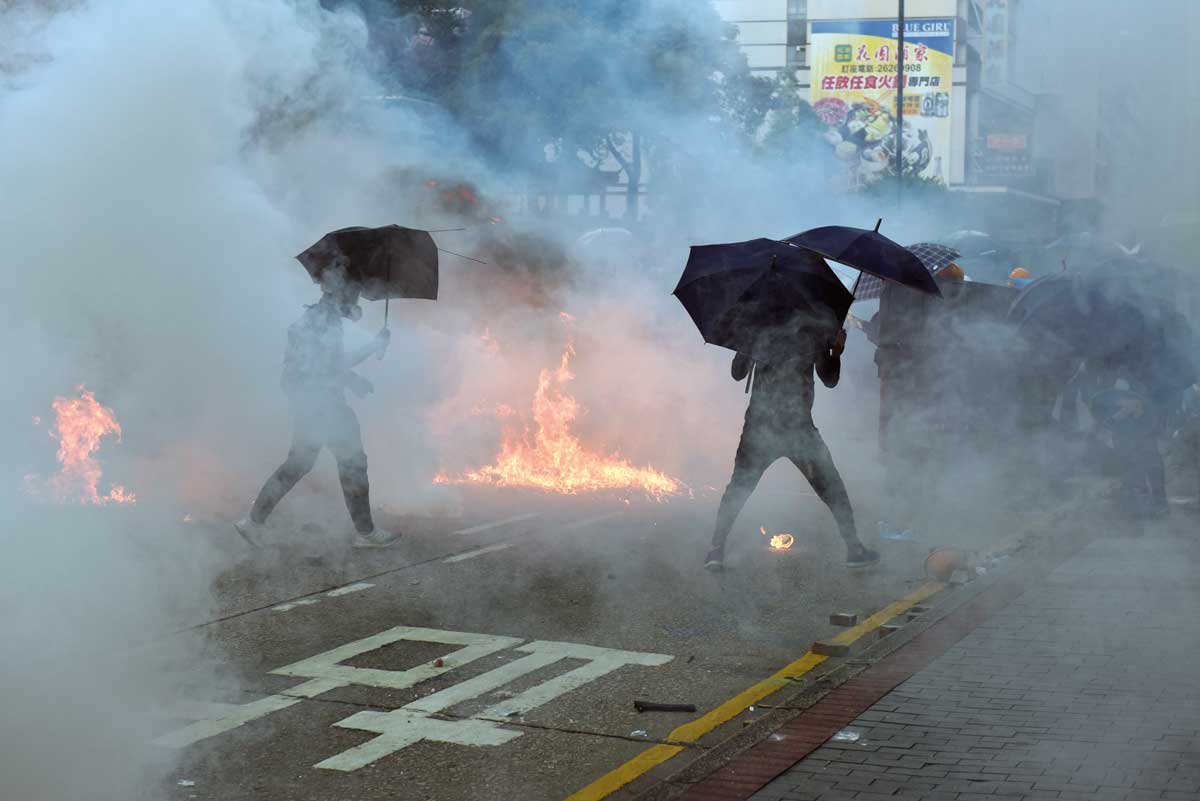No Such Thing | History Today - 5 minutes read

The title of The Invention of China, and of each of its chapters that address sovereignty, the Han race, Chinese history, language, national territory and maritime claims, echo The Invention of Tradition. That seminal collection, edited by Eric Hobsbawm and Terence Ranger, was published in 1983 and remains relevant, but Bill Hayton only refers to it once in passing. ‘Invention’ is the creative interplay between memory, narrative, interpretation and reimagination: applying this approach to the history of China today is appropriate but problematic. The Chinese Communist Party (CCP), particularly but not exclusively since the rise of Xi Jinping, has sought to control the narrative, not only of its own history – the authorised account of which has often changed dramatically over the years – but also the total history of China. Alternative interpretations are not tolerated and are seen as deliberate attempts to undermine the authority of the CCP and, by implication, the integrity and stability of China.
The Invention of China is both a polemic against Xi Jinping and an attempt to demolish Xi’s account of China’s history, although in reality that is a conventional version that long predates Xi. Hayton’s readable and well-paced narrative ranges widely but can be confusing when it skips across thousands of years of Chinese history. He draws selectively on scholarly secondary sources, all in English in spite of the strategic deployment of Chinese terms in pinyin romanisation. The thrust of the book is that there is really no such thing as China: the idea is a merely a construct of the late 19th and early 20th centuries. Although there is merit in that argument, and Hayton dispenses with much murky nationalist bathwater, significant babies also disappear.
Consider the last four centuries, beginning with the Qing dynasty imposed by conquering Manchus in 1644. Although scholars have done a fine job in unearthing and interpreting court documents in the Manchu language, it was never the language of China. It was unknown to the majority of the population, declined rapidly in the dispersed Manchu banner garrisons and never dominated the administration. Han and Manchu officials communicated primarily in literary Chinese, wenyan. China really did exist: for centuries, millions living and working in roughly the same geographical area spoke some form of Chinese and read – when they were able to read – literary Chinese. Chinese culture dominated the region, much to the chagrin of the Manchu elite, who considered it effete. What is more, literary Chinese had already spread beyond what is now Chinese territory and formed the basis of the early written languages of Vietnam, Korea and Japan. Chinese emperors, even those of ‘barbarian’ origin, appropriated the historical imperial tradition to legitimise their authority.
The Invention of China is interesting and provocative but ultimately frustrating. Without any prior acquaintance with the originals, beginners will be confused by the deconstruction of traditional accounts of China. Anyone with a sound knowledge of the country and its history will take issue with many generalisations and simplifications.
One place where the existence of ‘one China’ is currently being contested is Hong Kong. ‘One country two systems’ was the sophisticated and surprisingly elegant compromise achieved before the signing on 19 December 1984 of the Sino-British Joint Declaration on the future return of Hong Kong to Chinese sovereignty. It permitted a degree of flexibility as interested parties could selectively emphasise either one country or two systems. The compromise, signed by one of modern China’s most liberal premiers, Zhao Ziyang, and one of the UK’s least liberal, Margaret Thatcher, was intended to shield the economic and social structure of Hong Kong from unwanted change until 2047. During the Jiang Zemin and Hu Jintao administrations it functioned adequately, but came under serious pressure with the accession in 2012 of Xi Jinping, whose thinking was neither elegant, sophisticated nor liberal. In the second half of 2019 thousands demonstrated against Beijing’s interference and the compromise unravelled completely. On 30 June 2020 Beijing imposed a National Security Law on Hong Kong.
Kong Tsung-gan, author of Umbrella: A Political Tale from Hong Kong (2014), has now written Liberate Hong Kong, an authentic and unashamedly partisan voice from the 2019 protests. We read of the participation of ‘Francis’, whose willingness to die for the cause is no idle boast; ‘Nancy’, fighting cancer as well as Beijing; and ‘Ah Kan’, the author’s young Christian neighbour, on trial for rioting. Crucially, Kong provides the social context: the educational inequality, inadequate housing and deep societal divisions in the territory that may not be obvious to the casual visitor. Mass nonviolent protests with violent fringes reflected a loss of confidence in Legco – the local parliament – and the police. The upsurge in support for pro-democracy candidates in November 2019 demonstrated popular anger at pressure from Beijing.
The demonstrations led to the Polytechnic University siege in east Kowloon that was covered extensively by Western media and the lesser known occupation of the Chinese University in the New Territories. Particularly interesting are the pro-Beijing factions in areas such as North Point and Yuen Long that have close ties to the mainland (and some to organised crime). Leaders of clan-based associations cooperated with the police to keep trouble away from these neighbourhoods. As Kong says, the Chinese Communist Party ‘preferred to leave the rough stuff to its proxies, the Hong Kong police and the bottom-feeding triads and thugs. It preferred to pretend to be above the fray’. Liberate Hong Kong will stand the test of time and should be widely read, especially in Hong Kong. At the time of writing, the authorities are removing books sympathetic to the democracy movement from school and public libraries.
The Invention of China
Bill Hayton
Yale 320pp £20
Liberate Hong Kong: Stories from the Freedom Struggle
Kong Tsung-gan
Mekong 232pp £11.99
Michael Dillon’s latest book is Zhou Enlai: The Enigma behind Chairman Mao (I.B. Tauris, 2020).
Source: History Today Feed